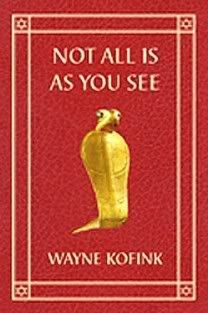THREE THOUGHTS ON TEACHING
First thought: The best way to learn anything is to teach it. This one I have discovered by long experience. Whenever I have taught anything, whether at church or at a university or a seminary, I have learned more about the subject. It’s one thing to know something, but another thing entirely to know it well enough to teach it to other people. There is another side to this, of course. No mater how well you know something, if you want to be able to teach it you have to know how to teach it. I have run into a good many experts who are masters of a subject, but haven’t a clue how to teach it. I first discovered this when some one tried to teach me how to play the card game euchre. They began, “now you have your right and left bower. . . “ and I was lost. You have to start by explaining the object of the game. I have seen brilliant physicists who are so deadly boring they can’t teach anything. I have experienced talented musicians who can’t help anyone perform. So there is a value in leaning how to teach. But it is absolutely necessary that you have mastery of a subject so that you have something worth teaching. That’s where the learning comes in. Thinking through how to teach something helps you to learn it better.
Second thought: A teacher always has to be open to questions. I was in third grade, I think, when I got a teacher who would always say, “No questions. I’ve explained everything.” Maybe she’s explained everything, but I didn’t always understand everything. Fortunately, a week later I was transferred to another teacher who actually invited questions. I flourished.
Some question is quite simple–missing factual information or procedural instructions. But sometime asking questions explores a subject in a different way. I could teach a Bible story, Jesus casting out a unclean spirit (Mark 1:22-24) and cover every thing. What would be better would be to leave a few things unsaid until a student asks a question like, “Why does Jesus tell the spirit to “be quiet’? That question shows great insight into the story because it observes a small detail that might otherwise be missed and in being missed a major theme of the Gospel would be lost. Asking questions helps a student to unlock secrets.
Third thought. The teacher should always be open to learning from the student. Many of the bad teachers I have experienced were not open to contributions from their students. I can think of two examples from my elementary school years. One was a teacher who insisted that the people in England ate so many fish because they were Catholic. That was just dumb. I knew that the people in England by the end of the 16th century were Anglican, not Roman Catholic. And besides, it was obvious to anyone with eyes to read a map that England was on an island, so there was plenty of places to catch fish. The second example was an eighth grade teacher who insisted that Martin Luther started the Reformation because he wanted worship services in German instead of Latin. Even at 13 I knew that wasn’t true. The issues that lead to the reformation had to do with theology and abuses in the church. Language of worship was a concern well after the Reformation had started and besides, Luther continued to conduct Latin services as well German. (From what I can tell, the use of Latin didn’t die out completely in the Lutheran Church until sometime in the middle of the eighteenth century.) The teacher didn’t want to hear about that, so she remained in ignorance and so did her students.
This point brings me to my Sunday morning adult discussion group. We were talking about everything but the announced subject. In the process I heard some interesting ideas that I immediately wrote down because I thought they were worth sharing. Here they are:
1. It is possible to dig yourself into a hole so deep that you can’t get out. You need help. Don’t be afraid to ask for it.
2. If you find you have dug yourself into a hole, the first rule is “stop digging.”
3. If you’re tightfisted in giving to others, remember that a closed fist can’t receive anything either.
See, you learn from your students.
Whether you’ve learned anything or not, may the Lord bless you on your journey and greet you on your arrival.
12624
Labels: Teaching






